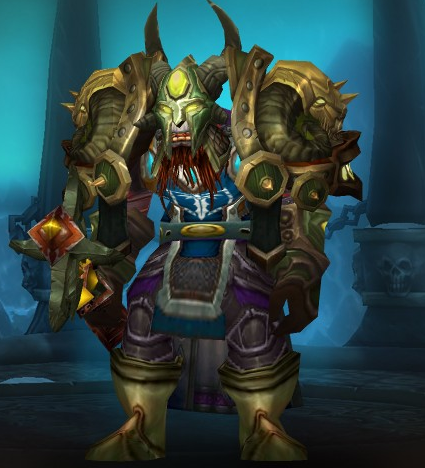I was watching Charles Stanley yesterday with a sermon called “No Greater Love”. It’s really, really good; I’d recommend watching it.
For those of the TL;DR mindset, however, I’ll give you the gist of it if you don’t care to watch a sermon for 45 minutes. Basically, Stanley explicates the well-known John 15:3, which states (with some extra for context):
This is My commandment, that you love one another, just as I have loved you. 13 Greater love has no one than this, that one lay down his life for his friends.
Love, in this sense, isn’t eros, which is the love of desire, or philios, the love/affection between friends. Rather, the word Jesus uses in this context is agape, which means something approximate to “sacrificial love”. Agape, then, means something different than the common conceptions of love that we have in American society. When someone says “I love you”, usually this works as an expression of desire – i.e., “I want you”. The person in question, then, is I, and it is something I want.
Agape does not function in this sense; in fact, it’s the exact opposite. Love in the selfless manner requires sacrifice. It loves a person (or persons) regardless of their background, their faults, or anything they do. The person who loves in the agape fashion necessarily sacrifices themselves to maintain it. One loves like God loves, which is unconditionally. But that doesn’t mean you have to accept the things they do, just the person they are underneath all the sin – just as Jesus did for you.
Makes sense, right? When I was listening to this, I was trying to think why this sounded so familiar. I mean apart from having read it in the Bible and such, or having heard it in a sermon. It felt like I had already been doing this, or learning how to do it, without even knowing it. That’s an odd bit of deja vu, for sure! Searching through the stuff I do normally, I finally got where that same sense came from: tanking.
Now, you might not think you’d learn any life lessons from playing World of Warcraft, but you’d be wrong. Tanking, for those not in the know, is the role of protection. A tank, in contrast to damage dealers and healers, has the job of directing the focus of enemies from his other party members to his/her self. Since the tank usually wears heavy armor and has a variety of abilities that reduce damage taken, the tank(s) will always be better equipped to take damage rather than, say, a cloth wearing healer.
There’s no PvE content in WoW that doesn’t require a tank at higher levels; enemies simply do too much damage for any other kind of player to take the hits the tank must. What makes a tank most interesting, however, remains the fact that he must play his role selflessly to be effective. If the tank, being selfish, decides he only wants to tank one enemy out of four, the other party members will die. To tank all targets (at least those which aren’t being disabled by other player abilities) and survive their attacks becomes the modus operandi for any tank. If the tank, seeing an enemy run torwards another target, fails to taunt (redirect the enemy’s attention) away from one of his/her other party members, that person may die if the tank’s reflexes aren’t quick enough.
Furthermore, if a tank isn’t willing to listen to his other party members when they point out his/her flaws, he’ll probably wipe (that is, kill) the entire group from his or her own negligence. A tank needs to know every encounter through and through – where to position bosses and enemies to maxmize DPS (damage per second) done by other party members, what abilities to use to reduce damage at what times for the healer’s beneift, and so on. A well-played tank makes the group run incredibly smoothly; even a bad damage dealer or healer can work with a great tank and appear as if they’re an expert. If the tank doesn’t play correctly, however, dungeon runs and raids become exercises in frustration, annoynance, and character death.
I suppose this is also true of the healer as well, but the tank really exemplifies agape because he, by volitional choice, takes the damage for his/her comrades. If he doesn’t, he’s a total failure; if she does take damage from all enemies, she does her job right. And the job can be, at some times, a completely thankless one, where the damage dealers (who, conveniently, don’t know any of the mechanics) belligerently blame you for the wipe, even though their own missteps really caused their defeat. Damage dealers, though they can play selfishly and develop a myopia where they’re obsessed with dealing damage at all time; hence, they forget what else they must do in order to win. The role allows this because the fate of the entire party isn’t on their shoulders at all times. They are allowed to make those mistakes because, if they do, the tank picks up the slack. Healers also can fall into bouts of myopia; healing does require staring at a bunch of bars and seeing them go up and down when you press button. There’s a time when they are bound to forget they shouldn’t stand in the fire. But if the tank lets up for one second, he could very well spell a wipe when someone dies. It’s tense, engaging, and always interesting. Even an in-combat rez isn’t always going to save a group; the tank rises with no buffs and little to no health, and has to regain the enemy’s attention – the time spent doing that could spell disaster.
I love tanking in MMOs. I try my best to know absolutely every encounter, the best position, the right time to use survival abilities during boss fights, and absolutely everything else. I’m always at the top of my game. But others? Well, they don’t seem to take the same commitment to the game because they don’t have to put in the work because, hey, the tank will take care of it. Still, I soldier on, still doing the job because I love it, even if there’s not a tangible reward attached (other than the promise of digital loot – score!) But I’m not just protecting NPCs (non-player characters); I’m protecting real people. And that makes all the difference in understanding the whole issue here.
I’ve been playing that same role for 5 years or so, and I think it’s gotten to me over time. Maybe I’ve grown more accepting of people. Maybe I’m understanding agape a bit better after having to sacrifice myself so many times to keep a group running (not to mention repair bills, ugh). Maybe video games can make us a little better than we were when we started them. Maybe tanking and “loving” are the same thing.
Or maybe I’m just crazy. What do you think?


